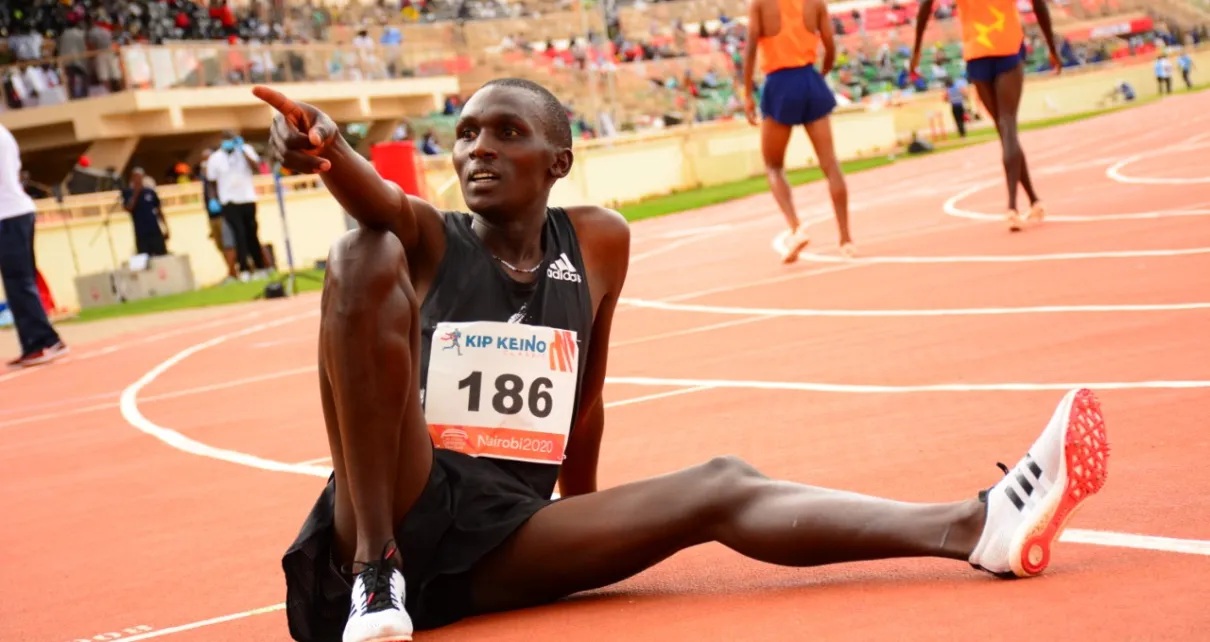Kenyan athletes have long been celebrated for their dominance in middle and long-distance running, frequently securing medals and demonstrating their remarkable endurance and speed on the global stage. However, recent years have seen a decline in this dominance, particularly in the men’s Olympic 5000m event, which remains an elusive challenge for Kenyan runners.
Kenya’s storied history in middle and long-distance running includes numerous victories and iconic performances. However, the men’s Olympic 5000m has consistently proven to be a tough race for Kenyan athletes. The last time Kenya won Olympic gold in this event was during the 1988 Seoul Games, thanks to the exceptional performance of John Ngugi. This victory marked a significant milestone in Kenya’s athletic history, yet it has not been replicated since.
Since Ngugi’s triumph, Kenyan athletes have struggled to secure the top spot in the 5000m event at the Olympics. Notable recent successes include Thomas Longosiwa’s bronze medal at the London 2012 Olympics and Eliud Kipchoge’s silver medal at the Beijing 2008 Games. Despite these achievements, the coveted gold medal has remained out of reach for over three decades.
Several factors contribute to the decline in Kenyan dominance in the 5000m event. One major factor is the emergence of strong international competitors who have adopted and adapted Kenyan training methods, raising the level of competition. Additionally, the 5000m race demands a unique blend of speed and endurance, differing from the longer distances where Kenyan runners have traditionally excelled.
Kenyan runners have historically performed exceptionally well in marathons and long-distance events, where their outstanding endurance provides a significant advantage. However, the 5000m race requires not only endurance but also tactical acumen and the ability to execute quick sprints. This combination of skills has been challenging for Kenyan athletes to master consistently.
To address these challenges, Kenyan coaches and athletes may need to refine their training approaches. Incorporating more speed work and tactical training into their regimens could help athletes better prepare for the specific demands of the 5000m race. Additionally, mental preparation and race strategy will play crucial roles in regaining a competitive edge.
Kenya remains a formidable force in middle and long-distance running despite the current hurdles. The legacy of athletes like John Ngugi, Thomas Longosiwa, and Eliud Kipchoge serves as a testament to Kenya’s potential to excel in the 5000m event. With the right adjustments in training and strategy, Kenyan runners can aspire to reclaim their position at the top of the podium.
To regain their dominance in the Olympic 5000m, Kenyan athletes and coaches must focus on specialized training and strategic racing. Enhancing speed work, improving race tactics, and boosting psychological resilience are essential areas of focus. These adjustments will help Kenyan athletes better navigate the physical and mental demands of the 5000m race, increasing their chances of success.
Moreover, investing in youth development programs and nurturing upcoming talent can ensure a continuous pipeline of skilled athletes ready to compete at the highest levels. By providing young runners with the necessary training, resources, and mentorship, Kenya can build a strong foundation for future success in the 5000m event.
Kenya’s continued dominance in many middle and long-distance events underscores the nation’s rich athletic heritage and potential. The men’s Olympic 5000m race, however, presents a unique challenge that requires a tailored approach. By addressing the specific demands of this race and implementing targeted training strategies, Kenyan athletes can overcome this challenge and achieve their Olympic dreams.
In summary, while Kenya continues to excel in various middle and long-distance events, the men’s Olympic 5000m remains a particularly challenging race. The last gold medal in this event was won by John Ngugi in 1988, with subsequent medals being a bronze by Thomas Longosiwa in 2012 and a silver by Eliud Kipchoge in 2008. To overcome this challenge, Kenyan athletes must focus on specialized training, strategic racing, and continuous development to achieve their Olympic aspirations.
ALSO READ:Shujaa’s Paris 2024 Campaign: Key Lessons for Future Success


